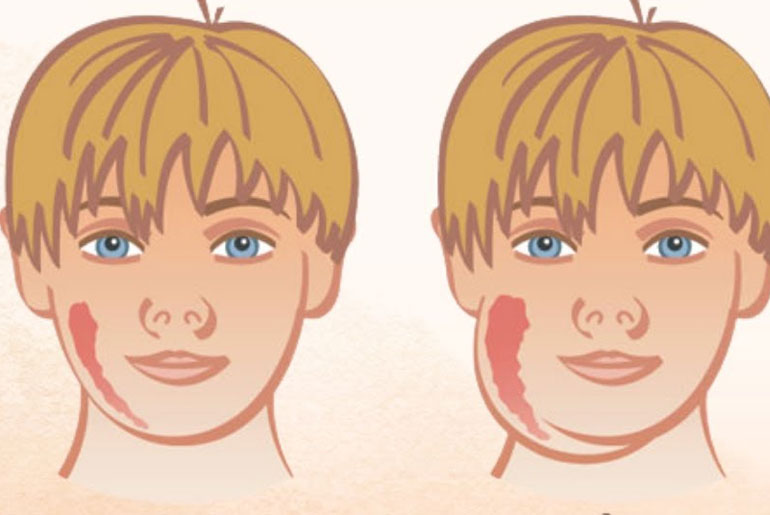In Kerala, there has been a rapid spread of mumps, with 2,505 cases reported this month alone. Health authorities are particularly concerned about the single-day count of 190 cases on March 10, prompting them to take measures to limit its spread. Mumps, caused by the paramyxovirus, typically results in mild symptoms, but less than 1% of cases may experience complications such as brain swelling or hearing loss, especially in those who have been vaccinated.
Although mumps can affect individuals of any age, it is more prevalent in children aged 5 to 9 years. The disease typically manifests after an incubation period of 2 to 4 weeks, starting with symptoms such as muscle pain, headache, malaise, and low-grade fever, eventually progressing to swelling of the parotid salivary glands, either unilaterally or bilaterally, as the infection progresses.
Mumps vaccines, according to the World Health Organization (WHO), are available in different forms: monovalent, bivalent (measles-mumps), or trivalent (measles-mumps-rubella, or MMR). Mumps is primarily transmitted through direct contact or airborne droplets from the upper respiratory tract of infected individuals. It’s worth noting that not everyone infected with the virus displays symptoms. Common symptoms of mumps include swollen and painful salivary glands, sore throat, fever, headache, fatigue, and loss of appetite. Recovery from the disease, which can be prevented by vaccination with the MMR vaccine, typically takes around two weeks.
Despite the widespread use of the measles-mumps-rubella (MMR) vaccine, outbreaks of mumps still occur periodically. It’s important to note that while the MMR vaccine has been highly effective in containing the spread of mumps, vaccinated individuals can still contract the disease, albeit with milder symptoms compared to unvaccinated individuals.
Symptoms:
- Swollen Salivary Glands: The hallmark symptom of mumps is swollen and tender salivary glands, typically on one or both sides of the face, giving a characteristic “hamster-like” appearance.
- Fever: Patients often experience fever, sometimes reaching high temperatures.
- Headache: Headaches are common, accompanying the fever and swelling.
- Muscle Aches: Generalized muscle aches and fatigue may occur.
- Loss of Appetite: Some individuals may experience a loss of appetite.
- Pain while Chewing or Swallowing: Swelling in the salivary glands can cause discomfort or pain while chewing or swallowing.
Causes:
The causes behind mumps outbreaks can vary, but several factors contribute to their occurrence:
- Lack of Vaccination: One of the primary causes of mumps outbreaks is the lack of vaccination. Mumps outbreaks often occur in communities where vaccination rates are low or where there are pockets of unvaccinated individuals. The MMR (measles, mumps, and rubella) vaccine is highly effective at preventing mumps. However, when vaccination rates decline, outbreaks become more likely. This can happen due to various reasons, including vaccine hesitancy, lack of access to healthcare, or misinformation about vaccines.
- Close Contact: Mumps is highly contagious and is spread through respiratory droplets from coughing, sneezing, or talking. Additionally, direct contact with saliva or mucus from an infected person can transmit the virus. Therefore, environments with close living quarters, such as college dormitories, military barracks, or crowded urban areas, can facilitate the spread of the virus. Close contact increases the likelihood of transmission, especially in settings where people spend extended periods in proximity to each other.
- Compromised Immunity: Individuals with weakened immune systems are at higher risk of developing mumps and experiencing more severe symptoms. Conditions such as HIV/AIDS or undergoing chemotherapy can compromise the immune system, making individuals more susceptible to infections like mumps. In such cases, the body’s ability to fight off the virus is impaired, leading to a higher likelihood of infection and potentially more severe complications.
By understanding these causes, public health efforts can focus on promoting vaccination, improving access to healthcare, and implementing preventive measures to reduce the risk of mumps outbreaks and protect vulnerable populations.
Treatment and Management:
- Supportive Care: Since mumps is a self-limiting disease, treatment focuses on managing symptoms. This involves getting plenty of rest, staying hydrated, and taking over-the-counter pain relievers such as ibuprofen or acetaminophen to reduce fever and alleviate pain.
- Isolation: Infected individuals should be isolated from others, especially those who are unvaccinated or at high risk of complications, to prevent further spread of the virus. This helps contain the infection and reduces the risk of transmission to others.
- Vaccination: The most effective way to prevent mumps outbreaks is through vaccination. The MMR vaccine provides protection against measles, mumps, and rubella. It is typically administered in two doses, with the first dose given at 12-15 months of age and the second dose at 4-6 years of age. Adults who have not been vaccinated or are unsure of their vaccination status should consider getting vaccinated, especially if they are at risk of exposure or plan to travel to areas with known outbreaks.
- Public Health Measures: Health authorities may implement various measures to control mumps outbreaks and prevent further transmission. This can include contact tracing, quarantine of exposed individuals, and vaccination campaigns to increase immunity within the community. Community cooperation is essential in promoting vaccination and reducing the spread of mumps.
Prevention:
- Vaccination: The MMR vaccine is the most effective way to protect against mumps. Ensuring that individuals receive both doses of the vaccine according to the recommended schedule helps build immunity and reduces the risk of infection.
- Hygiene Practices: Practicing good hygiene, such as frequent handwashing with soap and water, can help prevent the spread of mumps. Individuals should avoid sharing utensils or drinks with infected individuals to minimize the risk of transmission.
- Parental Vigilance: Parents should be vigilant and take extra care of their children, ensuring they follow proper hygiene practices. Monitoring their children’s health and seeking medical attention promptly if symptoms of mumps or any complications arise is crucial.
- Seeking Medical Attention: If someone contracts mumps, rest, plenty of fluids, and pain relievers can help alleviate symptoms while the body fights off the infection. It’s essential to seek medical attention if complications arise or if symptoms worsen to receive appropriate care and management.
By understanding the symptoms, taking preventive measures, and seeking timely medical care when needed, individuals can effectively manage mumps and reduce its impact on their health and the community.
Disclaimer:
The information contained in this article is for educational and informational purposes only and is not intended as a health advice. We would ask you to consult a qualified professional or medical expert to gain additional knowledge before you choose to consume any product or perform any exercise.







